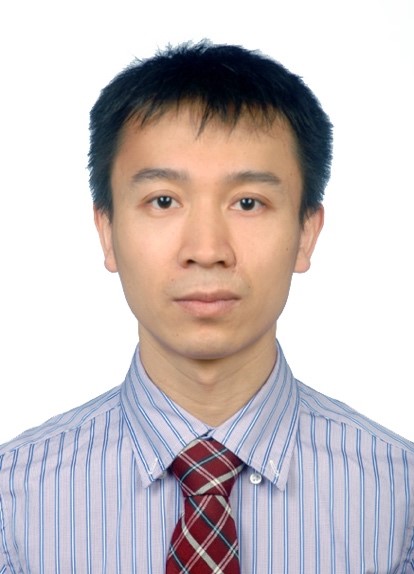
姓名:肖峰
职称:教授,博士生导师
研究方向(Focus Area):
1、网络化系统分布控制、多智能体系统协同控制、事件驱动控制
2、分布式决策与优化、群体智能、博弈控制系统
3、智能电网、电力系统建模与仿真
联系方式:
办公地址:主楼E502
电子邮箱:fengxiao@ncepu.edu.cn
电话:010-61772797
一、个人简介及主要荣誉称号
肖峰,男,1978年出生,汉族,天津人。国家优秀青年科学基金获得者,入选教育部“新世纪优秀人才支持计划”,北京大学博士,加拿大University of Alberta 博士后,2008年—2012年,北京理工大学自动化学院讲师、副教授;2012年—2018年,哈尔滨工业大学教授、博导;2018—今,太阳集团53138教授、博导。2016年—2017年,加拿大维多利亚大学访问学者;2012年入选哈尔滨工业大学人才引进“百人计划”第三层次;2016年聘为哈尔滨工业大学长聘教授。担任中国自动化学会控制理论专业委员会(TCCT)委员、中国控制会议(CCC)程序委员会委员(2014-2022)、《系统科学与数学》编委会编委等职务。
二、教学与人才培养情况
教学:
本科课程:人工智能原理与方法(专选课)、控制原理与应用(人工智能专业)、自动控制原理B
研究生课程:网络化群体智能(人工智能交叉学科)
人才培养:
谢凌云:太阳集团53138优秀硕士学位论文
魏波:太阳集团53138副教授
戴明哲:中南大学教师
三、主要科研项目情况
纵向项目
[1]2023-2026:《基于信息物理系统的微电网安全控制与优化》,国家自然科学基金—面上项目
[2]2022-2024:《基于博弈的多智能体系统协同控制与优化》,北京市自然科学基金—面上项目
[3]2019-2022:《基于采样的异步多智能体系统协同控制研究》,国家自然科学基金—面上项目
[4]2015-2017: 国家自然科学基金—优秀青年科学基金项目
[5]2014年度留学人员科技活动项目择优资助—启动类,人力资源和社会保障部
[6]2014-2016: 教育部“新世纪优秀人才支持计划”资助项目
[7]2013-2016: 《多智能体系统的分布式采样一致性控制》, 国家自然科学基金—面上项目
[8]2010-2012: 《多智能体网络系统的一致性协调控制》, 国家自然科学基金—青年基金项目
[9]2010-2012: 《复杂环境下多机器人系统的队形控制》, 教育部高等学校博士学科点专项科研基金
四、主要获奖
[1]2017:国家自然科学奖二等奖(项目名称:网络化动态系统的分析与控制)
[2]2016:教育部自然科学奖一等奖(项目名称:网络化动态系统的分析与控制)
[3]2014:国家自然科学奖二等奖(项目名称:分布式协同控制的混合智能优化与稳定性)
[4]2014:教育部自然科学奖一等奖(项目名称:分布式协同控制的智能优化与稳定性)
[5]2014: 国家优秀青年科学基金获得者, 国家自然科学基金委
[6]2013: 新世纪优秀人才支持计划, 教育部
[7]2010: Izaak Walton Killam Memorial Postdoctoral Fellowship, University of Alberta, Edmonton, Canada
[8]2010: Dorothy J Killam Memorial Postdoctoral Fellow Prize, University of Alberta, Edmonton, Canada
[9]2018:2017年《中国科学:信息科学》十年经典论文奖
[10]Automatica高被引论文奖
[11]2008: 北京大学优秀毕业生, 北京大学
五、代表性论著
[1]X. Cai, F. Xiao, B. Wei, M. Yu, F. Fang (2022). Nash Equilibrium seeking for general linear systems with disturbance rejection.IEEE Transactions on Cybernetics.
[2]X. Cai, F. Xiao, B. Wei (2022). Resilient Nash Equilibrium seeking in multiagent games under false data injection attacks. IEEE Transactions on Systems, Man, and Cybernetics: Systems.
[3]F. Xiao, Y. Shi, T. Chen (2021). Robust stability of networked linear control systems with asynchronous continuous- and discrete-time event-triggering schemes. IEEE Transactions on Automatic Control, 66(2), 932-939.
[4]B. Wei, F. Xiao, F. Fang, Y. Shi (2021). Velocity-free event-triggered control for multiple Euler-Lagrange systems with communication time-delays. IEEE Transactions on Automatic Control, 66(11): 5599-5605.
[5]J. Yang, F. Xiao, T. Chen (2021). Formation tracking of nonholonomic systems on the special euclideangroup under fixed and switching topologies: An affine formation Strategy.SIAM Journal on Control and Optimization,59(4), 2850-2874.
[6]B. Wei, F. Xiao (2021). Distributed consensus control of linear multi-agent systems with adaptive nonlinear couplings. IEEE Transactions on Systems, Man and Cybernetics: Systems, 51(2), 1365-1370.
[7]J. Yang, F. Xiao, T. Chen (2020). Event-triggered formation tracking control of nonholonomic mobile robots without velocity measurements. Automatica, 112, 108671.
[8]B. Wei, F. Xiao, Y. Shi (2020). Fully distributed synchronization of dynamic networked systems with adaptive nonlinear couplings. IEEE Transactions on Cybernetics, 50(7), 2926-2934.
[9]B. Wei, F. Xiao, Y. Shi (2020). Synchronization in Kuramoto oscillator networks with sampled-data updating law. IEEE Transactions on Cybernetics, 50(6), 2380-2388.
[10]B. Mu, K. Zhang, F. Xiao, Y. Shi (2019). Event-based rendezvous control for a group of robots with asynchronous periodic detection and communication time delays. IEEE Transactions on Cybernetics, 49(7), 2642-2651.
[11]J. Yang, F. Xiao, J. Ma (2019). Model-based edge-event-triggered containment control under directed topologies. IEEE Transactions on Cybernetics, 49, 2556-2567.
[12]F. Xiao, Y. Shi, W. Ren (2018). Robustness analysis of asynchronous sampled-data multi-agent networks with time-varying delays. IEEE Transactions on Automatic Control, 63(7), 2145–2152.
[13]F. Xiao, T. Chen (2018). Adaptive consensus in leader-following networks of heterogeneous linear systems. IEEE Transactions on Control of Network Systems, 5(3), 1169-1176.
[14]G. Duan, F. Xiao, L. Wang (2018). Asynchronous periodic edge-event triggered control for double-integrator networks with communication time delays. IEEE Transactions on Cybernetics, 48(2), 675–688.
[15]B. Wei, F. Xiao, M-Z. Dai (2017). Edge event-triggered synchronization in networks of coupled harmonic oscillators. IEEE Transactions on Cybernetics, 47(12), 4162-4168.
[16]F. Xiao, T. Chen, H. Gao (2016). Synchronous hybrid event- and time-driven consensus in multiagent networks with time delays. IEEE Transactions on Cybernetics, 46(5), 1165–1174.
[17]M. Cao, F. Xiao, L. Wang (2015). Event-based second-order consensus control for multi-agent systems via synchronous periodic event detection. IEEE Transactions on Automatic Control, 60(9), 2452–2457.
[18]F. Xiao, L. Wang, T. Chen (2014). Finite-time consensus in networks of integrator-like dynamic agents with directional link failure. IEEE Transactions on Automatic Control, 59(3), 756–762.
[19]F. Xiao, T. Chen (2012). Sampled-data consensus for multiple double integrators with arbitrary sampling. IEEE Transactions on Automatic Control, 57(12), 3230–3235.
[20]F. Xiao, L. Wang, T. Chen (2012). Connectivity preservation for multi-agent rendezvous with link failure (Regular Paper). Automatica, 48(1), 25–35.
[21]F. Xiao, L. Wang (2012). Asynchronous rendezvous analysis via set-valued consensus theory. SIAM Journal on Control and Optimization, 50(1), 196–221.
[22]L. Wang, F. Xiao (2010). Finite-time consensus problems for networks of dynamic agents. IEEE Transactions on Automatic Control, 55(4), 950–955.
[23]F. Xiao, L. Wang, J. Chen, Y. Gao (2009). Finite-time formation control for multi-agent systems. Automatica, 45(11), 2605–2611.
[24]F. Xiao, L. Wang (2008). Asynchronous consensus in continuous-time multi-agent systems with switching topology and time-varying delays (Regular Paper). IEEE Transactions on Automatic Control, 53(8), 1804–1816.
[25]F. Xiao, L. Wang (2008). Consensus protocols for discrete-time multi-agent systems with time-varying delays. Automatica, 44(10), 2577–2582.